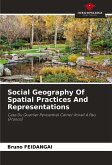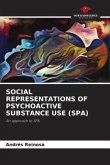The aim of this research was to investigate the social representations that employees in an industry make about work, the work environment and interpersonal relationships at work. The theoretical framework chosen was Social Representation Theory, which is based on the assumption that Social Representation is a social construction, capable of helping to shape and guide the social behaviour of a given group. This study involved 21 employees from a small industry located in the metropolitan region of the state of São Paulo. The instruments used were: a questionnaire made up of open and closed questions. The closed questions were used to capture employee profiles and the data from the open questions was submitted to Content Analysis. Based on the representations expressed by the employees, it was possible to identify and observe that the need for individual recognition is above the collective, of the group.
Bitte wählen Sie Ihr Anliegen aus.
Rechnungen
Retourenschein anfordern
Bestellstatus
Storno








